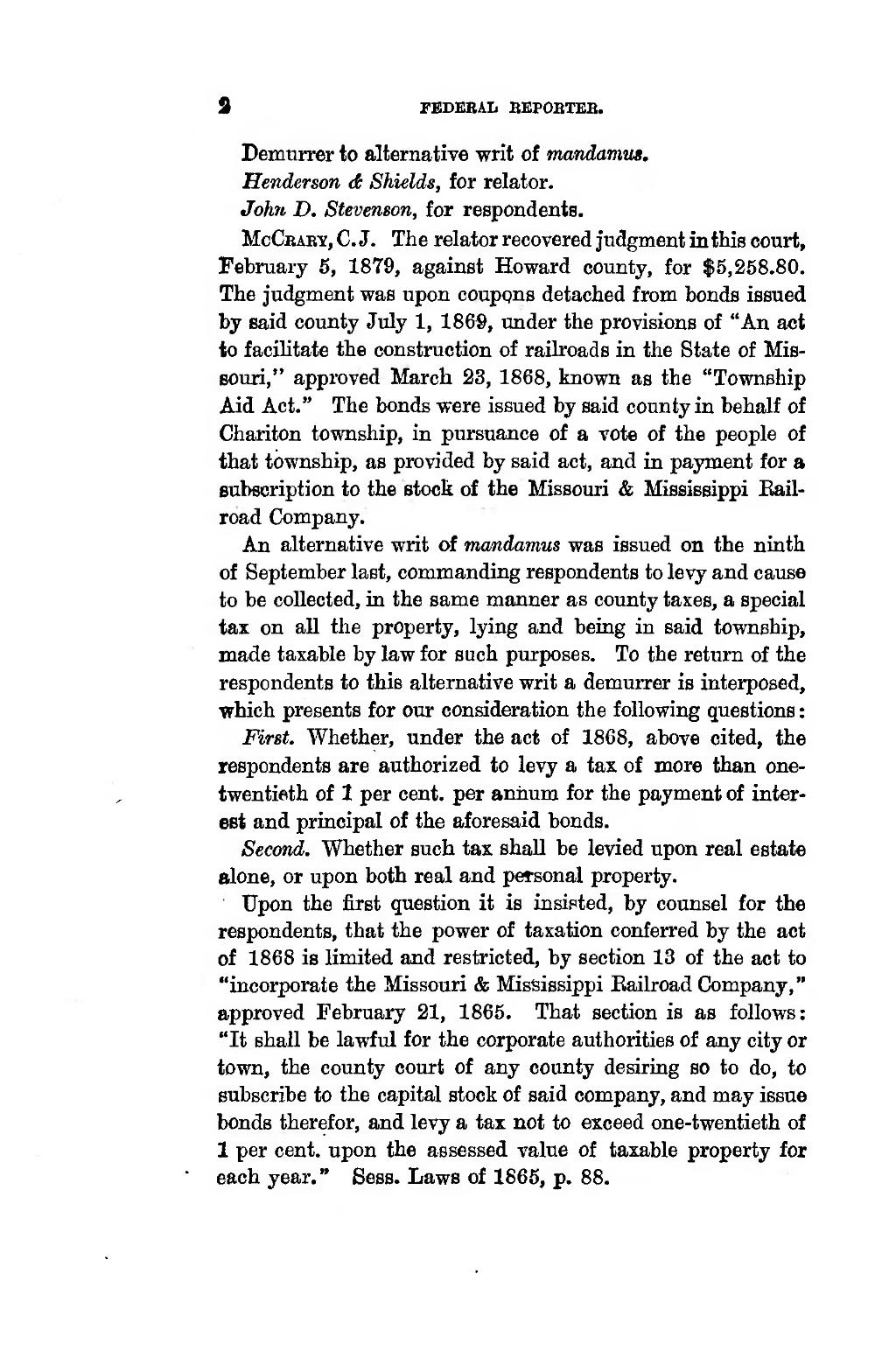9 rEDEEAIi BEPOBTEB. �Demurrer to alternative writ of maniamus, �Henderson d Shields, for relator. �John D. Stevenson, for respondents. �McCeaey, C. J. The relator recovered Judgment in this court, February 6, 1879, against Howard county, for $5,258.80. The judgment was upon couppns detached from bonds issued by said county July 1, 1869, under the provisions of "An act to facilitate the construction of railroads in the State of Mis- Bouri," approved March 23, 1868, known as the "Townahip Aid Act." The bonds were issued by said county in behalf of Chariton township, in pursuance of a vote of the people of that township, as provided by said act, and in payment for a Bubflcription to the stock of the Missouri & Mississippi Eail- road Company. �An alternative writ of mandamus was issued on the ninth of September last, commanding respondents to levy and cause to be coUected, in the same manner as county taxes, a special tax on ail the property, lying and being in said township, made taxable by law for such purposes. To the return of the respondents to this alternative writ a demurrer is interposed, which presents for our consideration the foUowing questions : �First. Whether, under the act of 1868, above cited, the respondents are authorized to levy a tax of more than one- twentieth of 1 per cent, per anhum for the payment of inter- est and principal of the aforesaid bonds. �Second. Whether such tax shall be levied upon real estate alone, or upon both real and pefsonal property. �Upon the first question it is insisted, by counsel for the respondents, that the power of taxation conferred by the act of 1868 is limited and restricted, by section 13 of the act to "incorporate the Missouri & Mississippi Eailroad Company," approved February 21, 1865. That section is as follows: "It shall be lawful for the corporate authorities of any city or town, the county court of any county desiring so to do, to Bubscribe to the capital stock of said company, and may issue bonds therefor, and levy a tax not to exceed one-twentieth of 1 per cent, upon the assessed value of taxable property for each year." Sess. Laws of 1865, p. 88. ����
